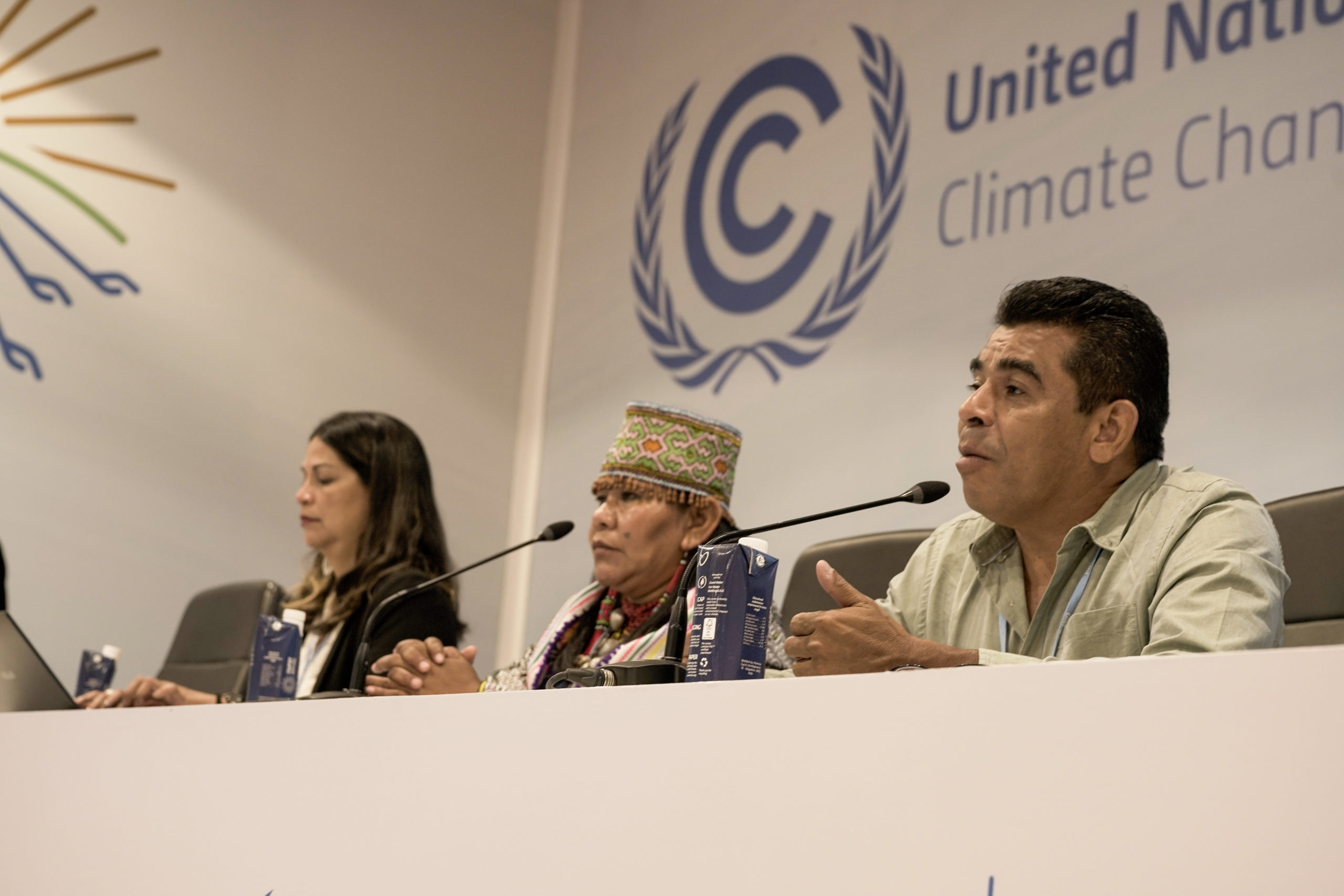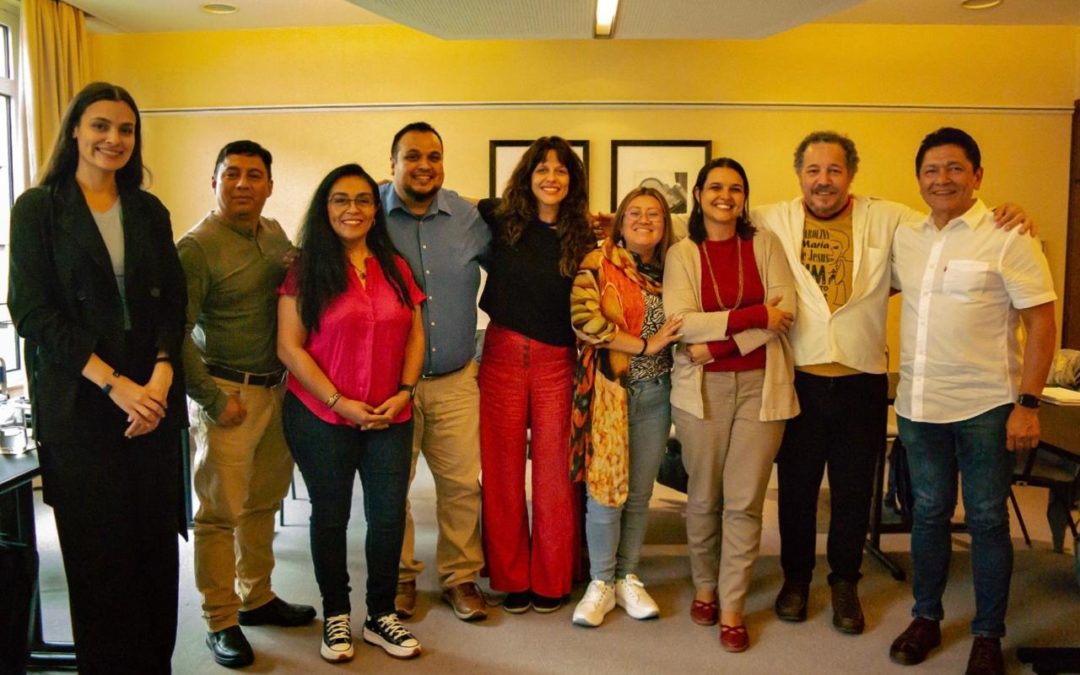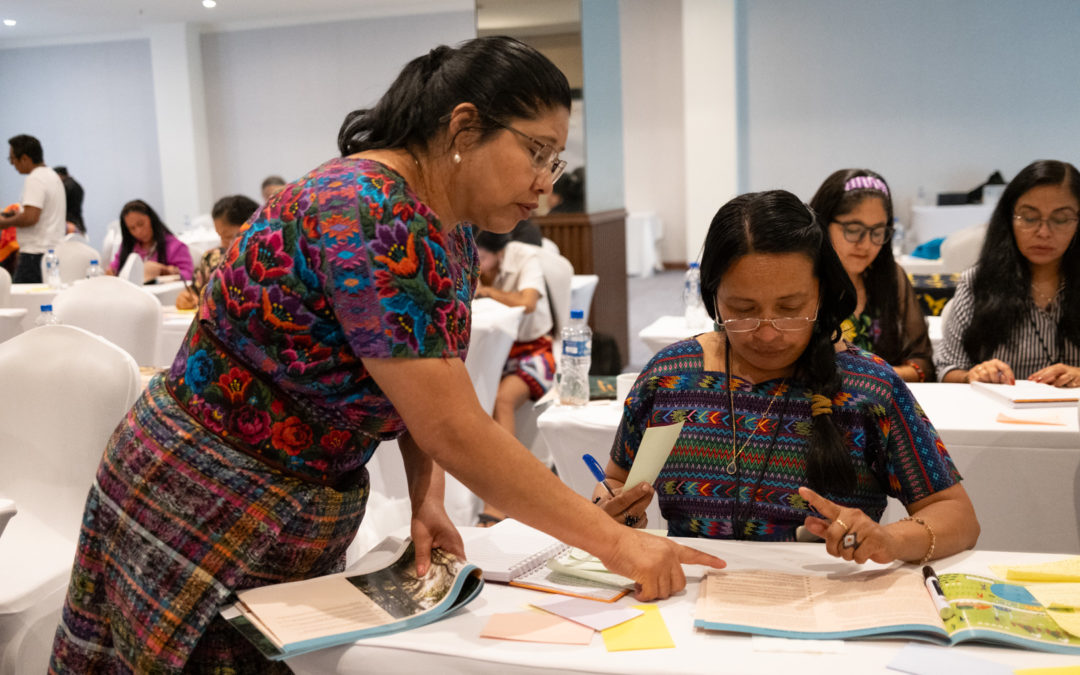At COP27, the FSC Indigenous Foundation, the Mesoamerican Alliance of Peoples and Forests (AMPB), the Association for Research and Integral Development (AIDER), and Ecosphere+ convened experts at an event on November 16 in the UNFCCC Capacity Building Hub, “Integrating Indigenous Peoples into the NDC process through capacity development”. This event highlighted Indigenous communities effectively engaging in the carbon market and shared lessons, strategies, and recommendations to drive Indigenous capacity development.
Nationally Determined Contributions (NDCs) are part of the strategy to achieve the Paris Agreement under the United Nations Framework Convention on Climate Change to commit to actions to mitigate greenhouse gas emissions.
Indigenous Peoples are critical for climate mitigation, as their territories are sources of global solutions to climate change and are vital to conserving and restoring ecosystems. Indigenous Peoples and local communities are custodians of 20% of forest carbon in tropical and subtropical countries, which is equivalent to 218 billion tons of carbon, or more than 30 times the total global energy emissions in 2017.
It is critical to scale up and better integrate Indigenous Peoples in NDC processes with governments through capacity development.
Case studies: Indigenous participation in the NDCs and lessons for capacity development
A panel with Indigenous leaders and partner organizations shared initiatives in Costa Rica and Peru related to the Reducing Emissions from Deforestation and Forest Degradation (REDD+) mechanism that are part of the NDCs.
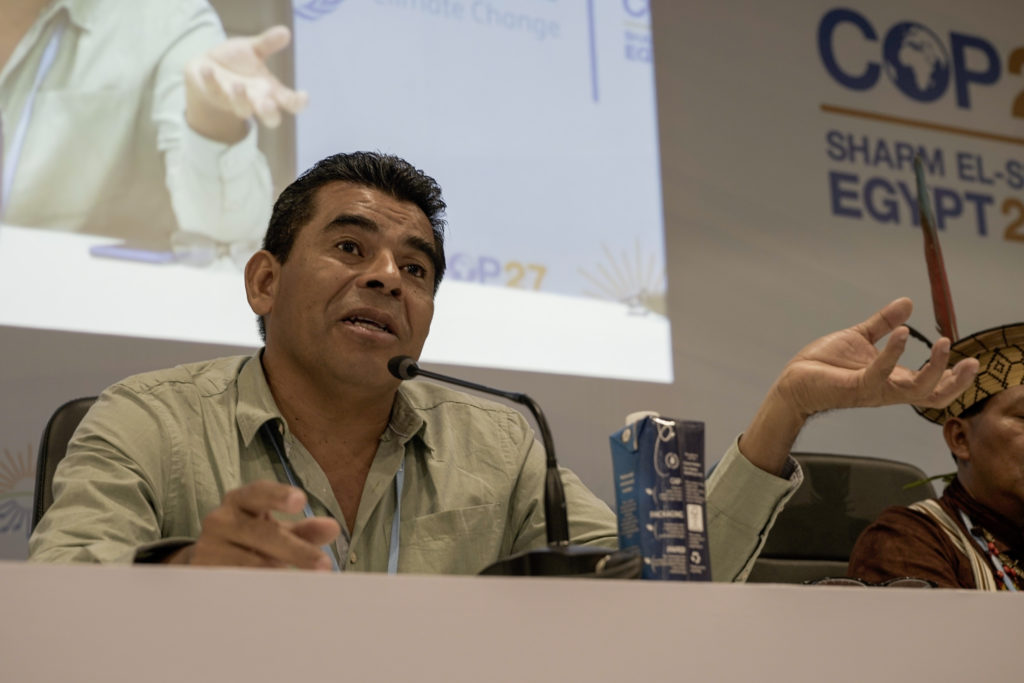
Levi Sucre, Coordinator of the Mesoamerican Alliance of Peoples and Forests (AMPB) described his experience leading the consultation for the REDD+ strategy in Costa Rica. He explained how the government facilitated Indigenous leaders’ understanding of key issues such as climate change for the consultation process and the importance of having a young cultural mediator who speaks the Indigenous language to interpret and understand the REDD+ strategy.
He stated, “We need to integrate the Indigenous worldview into the REDD+ national strategy. These concepts must be understood in order to create a more integrated proposal.”
The next two panelists spoke about the Alianza Forestal, a Community Forest Management initiative that incorporates REDD+, developed by AIDER in Peru.

Diana Mori, representative of the Shipibo-Conibo Indigenous group, spoke about Indigenous women’s participation in the struggle for collective rights and communal forests and how communities have adapted their traditional knowledge of forest management with proposals and voluntary standards for FSC certification. Indigenous Peoples need to understand climate finance and how certification mechanisms work.
She emphasized the resiliency of Indigenous Peoples and Indigenous women.
Marioldy Sánchez, Head of Project Management at AIDER, discussed capacity development efforts with communities and their leaders on climate finance with REDD+ and the management of Indigenous forests with an integral perspective. She emphasized the importance of starting from the holistic perspective of Indigenous Peoples and training Indigenous leaders.
She stated, “Strategic alliances, such as the forestry alliance, allow for capacity building for Indigenous Peoples. It is important that other sectors learn from the intersectoral dialogue of this experience and exchange ancestral knowledge.”

Berlin Diques, President of the Regional Organisation AIDESEP Ucayali (ORAU), spoke about how Indigenous Peoples are asking for clear public policies to protect the forests and mitigate climate change, and that strategic alliances are key to advancing and speeding up our processes. He emphasized that civil society and Indigenous organizations must take the lead in the process to develop technical capacities.
He said, “Without the legal security of Indigenous territories, it is not possible to talk about a climate change process.”
Panelists concluded that Indigenous Peoples must be supported with improved capacity development to keep safeguarding forests and practicing nature-based solutions through existing mechanisms such as REDD+, certification, and the NDCs.
Rita Spadafora, IPARD Program Lead for Capacity Development and Inclusion at the FSC Indigenous Foundation, moderated the event and closed with a message that we must focus on improving the capacities of Indigenous Peoples and governments to create the conditions for Indigenous Peoples to influence the climate agenda with the capacity to negotiate the recognition of their contributions to mitigate climate change within the NDCs.
